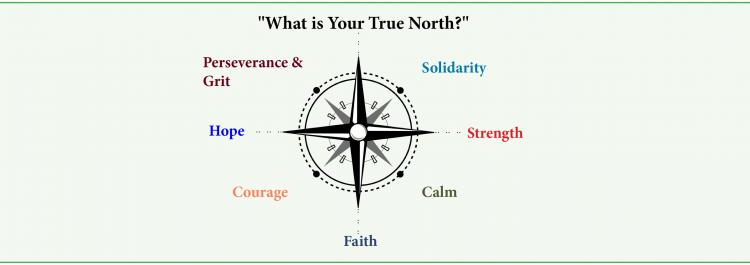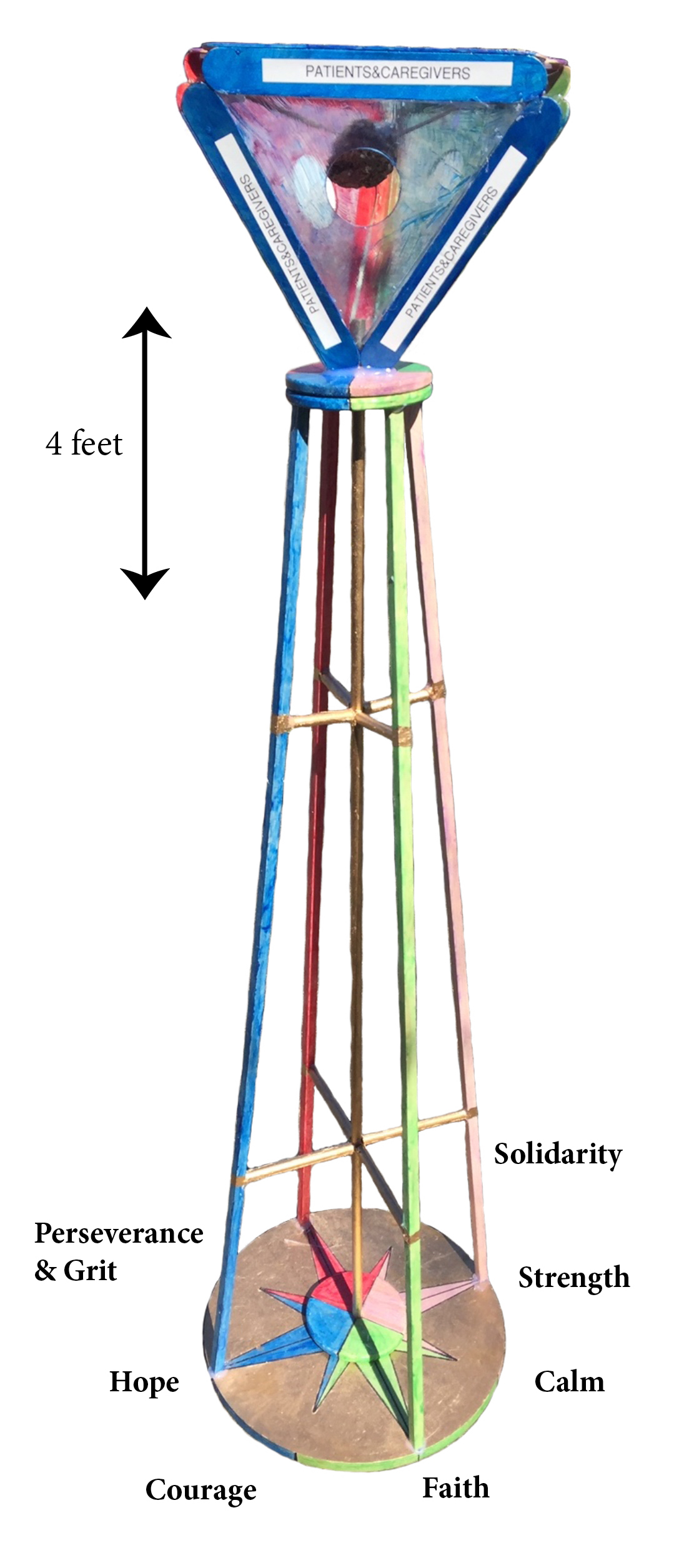Chapter 2 of My Journey from Disease into Advocacy by Kevin Kvarda (View Chapter 1)
Published in Dimensions Magazine - Spring 2021
Download the original print version of this article
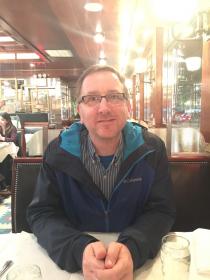
Kevin Kvarda
Hello Friends! My name is Kevin Kvarda and you can call me “K-Squared.” I have Younger Onset Alzheimer’s Dementia, and PPA (Primary Progressive Aphasia). In the months before I got my diagnosis in 2019, I was in agony. I had to pick: 1) FIGHT or 2) FLIGHT with these diseases. I CHOSE to FIGHT and became a Strong Advocate for the CURE for these diseases, and being an Alzheimer’s Association board member helps me with my mission. Overall, I am doing very well currently, and because of that, I want to help others and give back in any way I can. I know that someday I might not be able to do this anymore, but until that day, I will keep going STRONG. One day at a time! I want to share about what has helped me in my journey to stay strong and grow after my diagnosis and give encouragement to others.
In last year’s Spring 2020 issue of Dimensions and the MBWC website, I introduced my creation called PRISM. This sculpture communicates my wishes to increase strength and hope of patients and all people in the dementia community. But, PRISM was just the beginning. I’m still here! I want to expand the potential of the PRISM.
When the pandemic stopped in-person activities and support groups, I began to think about encouraging messages for people living with a diagnosis like mine. This developed into the idea of a compass and kept growing... into a gift that can help guide you to your True North— your source of well-being, meaning, and identity building. Introducing the Memory Loss Compass Rose!
The Memory Loss Compass Rose Comes To Life
The Memory Loss Compass Rose is a GIFT that can guide you toward your new 'True North'. It can help you navigate your journey after a diagnosis, and to embrace change. Anyone who needs encouragement can use this Memory Loss Compass Rose, including patients, caregivers, researchers, doctors, and staff of support associations.
A person can turn the PRISM because it sits on a rotating platform, or a "flange." The gold ball inside the PRISM represents humanity. The PRISM rests on top of tall wooden legs. When a user rotates the PRISM above, they will land on different points on the Compass Rose. It is like a matrix of options. You can explore how these concepts may apply to their journey with memory loss or a challenge. Is there a special recipe (e.g. Courage + Solidarity) that helps define your true North?
Journey Key (The Points on the Memory Loss Compass Rose)
SOLIDARITY People that have Memory Loss NEED others on their side! (Family, Friends, Caregivers, Doctors). When we are connected to others, it is easier to see a path forward. Being connected with others gives you an opportunity to give yourself to others as well as receive friendship.
HOPE What would the world be without Hope? Sometimes, I don’t see hope, and later something ALWAYS comes to me or my family. When I feel like there’s no hope, I PAUSE what I was doing, and then go to do something else and after that come back to complete.
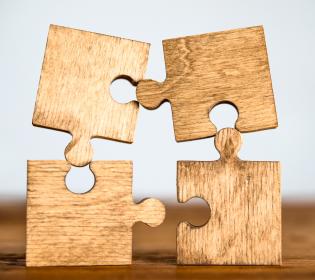
COURAGE is a blend of solidarity and hope. I believe that everyone has courage in them, BUT without other’s support life can be challenging. As we go every day with our Memory Loss, we need USE our tools, such as Solidarity, Hope, family, friends, etc. I believe it is CRUCIAL. Tip: Try to find new friends who know about your Memory Loss and maybe others that don’t. Finding new friends will make you more courageous. You WANT to have others on your side who can help with being Courageous.
FAITH I believe that Faith is done by work with Courage, Hope, and Solidarity. I believe that Faith is something that YOU should “Opt IN”. No one can dictate your Faith…it’s personal and wonderful.
STRENGTH What was a moment when you had STRENGTH in your life? For me, it was back when I was a pilot, when I was flying solo or with a student. What was a moment when you didn’t have STRENGTH in your life? For me, my wife Norma is strong, so most of the time, I deferred things that I should have been doing to her. What will you do in the future to make you STRONG?
PERSEVERANCE & GRIT Persistence in doing something despite difficulty or delay in achieving success.
CALM "A calm mind brings inner strength and self-confidence, so that's very important for good health." - Dalai Lama
How can the Memory Loss Compass Rose guide you? A Worksheet
> Download this worksheet to print out at home!
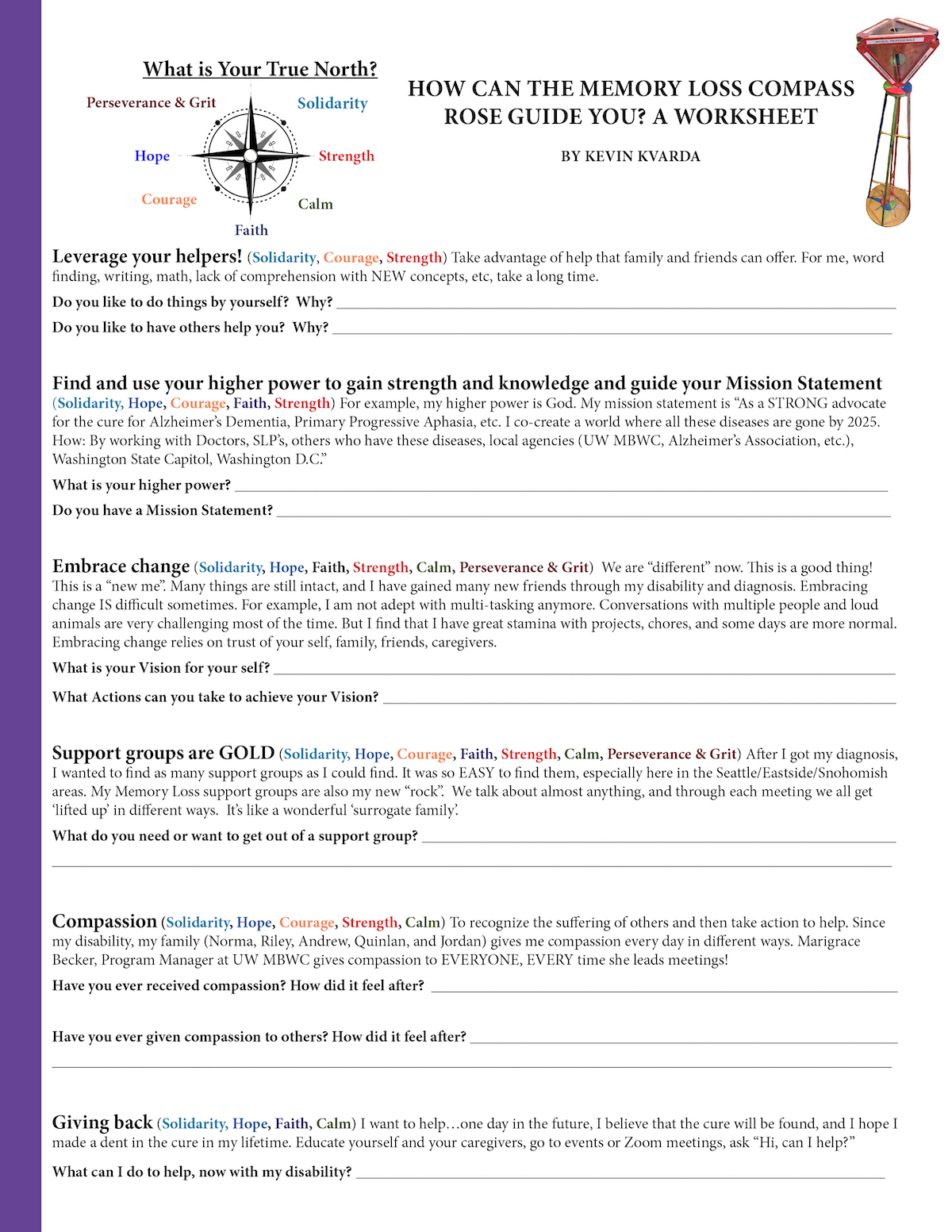
Click to Enlarge. Download
Examples of Advocacy in 2020-2021!
- I engaged with our local memory loss community through virtual Zoom meetings hosted by the UW MBWC. The “Virtual Coffee Chats” provide a chance to connect with others in an informal, supportive environment. I led group discussions about the themes included in the Memory Loss Compass Rose.
- I attended a Dementia Action Collaborative (DAC) meeting. The group meets twice a year, to drive the State Alzheimer’s Plan in Washington, as organized by state legislative directive in 2014. I was invited to the meeting by the Alzheimer’s Association to represent the perspective of a person living with Alzheimer’s disease, as a community stakeholder.
- I participated in the 2021 Alzheimer’s Association’s virtual Advocacy Day, to represent District 44 (Snohomish). I asked Rep. John Lovick to support $1.9 million for Dementia Resource Catalyst programs in WA State. These would will improve access to home-based services for people affected by dementia. I also advocated for congress to protect $1.3 million to continue the work of the Dementia Action Collaborative (DAC). The day brought in 71 participants with a total of 50 meetings. We were the first chapter in the nation to host our advocacy day and have been able to offer tips and advice for other chapters.
- The House and Senate released their proposed budgets near the end of March. Here is how our top priorities fared:
- Dementia Action Collaborative staff and programs: FUNDED in both budgets
- Specialty dementia care Medicaid rate increase: FUNDED in both budgets; funded at a higher rate in the Senate than the House.
- Dementia Resource Catalysts: FULLY FUNDED in the Senate at the $1.914M requested level; PARTIALLY FUNDED in the House.
Acknowledgements
- My family of 5, my mother, father, brother, and many relatives in different states
- Marigrace Becker, Dr. Kimiko Domoto-Reilly, Genevieve Wanucha, Brad Rolf, and James DeLappe (UW Medicine)
- Leslie Kot (UW Speech & Hearing Sciences) and Graduate Student Clinicians: Nicole Campbell, Sarah Harrison, Clarke E. Smith, Ping Lau, Savannah Bailey, Ivy Hoekman, Samantha Bartolo
- Hazel Borden, Katya Strohl, and Peter Newbould (Alzheimer's Association WA State Chapter)
- My 3 spiritual men’s groups
